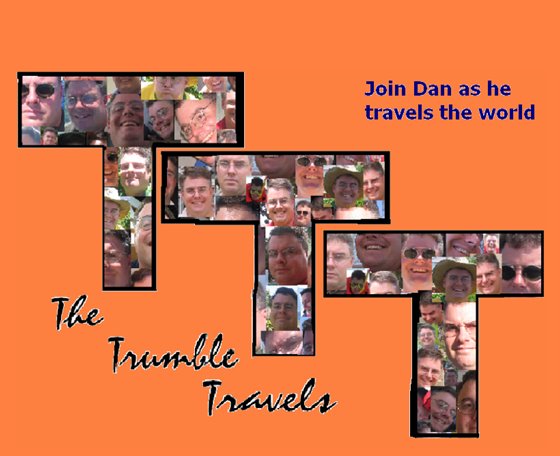Sent: Monday, May 21, 2007
Subject: TTT The Trumble Travels - Poverty Ethiopia VII
There is great poverty in Ethiopia. Something that was new to me was people sleeping in the grassy medians of major streets or along the side of the road during the day. It really puts our own wealth in perspective. I guess we all know that there are homeless people and have even seen them but I saw some crushingly poor people while in Ethiopia. After lunch one day with one of my colleagues we went out for coffee. I asked him how much our waitress would make and he thought about 175 birr per month (about $20). He also mentioned that they may turn to prostitution at night. The chasm between the income of some of these folks and what we’re used to in the West is immense.
If you’re walking it is common to be approached by people on the street or while you’re driving to be approached in your vehicle while you’re stopped at stoplights. They beg for money. Some are disabled in some manner or lead another disabled person around or carry a baby or something like that. It’s hard to know whether money you might give to them would be used by them or whether they are working for someone who would skim the profits. Regardless, their material poverty seems genuinely extreme.
One evening on the way back to the hotel from the office there was a young man who had a bad leg or bad foot. He had kind of a walking stick/cane thing and he would sort of wrap his bad leg around it and use it sort of like a peg-leg. He could get around pretty good on that. There was another place where we were stopped for some shopping and there was a man that kind of went around on two hands and one foot. Not crawling on his knees but sort of hobbling around bent over on hands and a foot. Pretty sobering.
Some boys came up to the window wanting money one day and sang “This is the Day” in Amharic. I ended up giving each 10 birr (about $1.15). I gave a 10 birr note to one of them but the other wanted his share too and I ended up giving one to him as well. Given the great poverty and low income of some of these folks, that was probably a pretty good score for them.
On Sunday I was approached by 3 more children and they also sang “This is the Day” so perhaps that is a common ploy that is used and not anything special after all.
We are so wealthy in the West and have so much to be grateful for. I think of the circumstances that some of these homeless people find themselves in and wonder about family or friends that could help. If I fell on hard times, there are a number of people that would help me out (hopefully!). I have much to be thankful for, not only material wealth, but spiritual and relational wealth as well.
Think of the scripture passage about the rich young ruler in Mark 10. The young man asks Jesus how he can inherit eternal life and Jesus basically says to keep the commandments but then in verses 21 and 22 Jesus says one more thing to him:
Jesus looked at him and loved him. "One thing you lack," he said. "Go, sell everything you have and give to the poor, and you will have treasure in heaven. Then come, follow me." At this the man's face fell. He went away sad, because he had great wealth.
In following Christ, if He wants me to get rid of all my stuff, am I prepared to do that? Ouch. It would be really hard. May God grant us all the right attitude toward our stuff. Let’s not hold onto it too tightly.
Person sitting in the street. I’m not sure what was going on.

Housing near our hotel

Various poor people

Not a very good picture but these “tents” are people’s dwellings.


















































